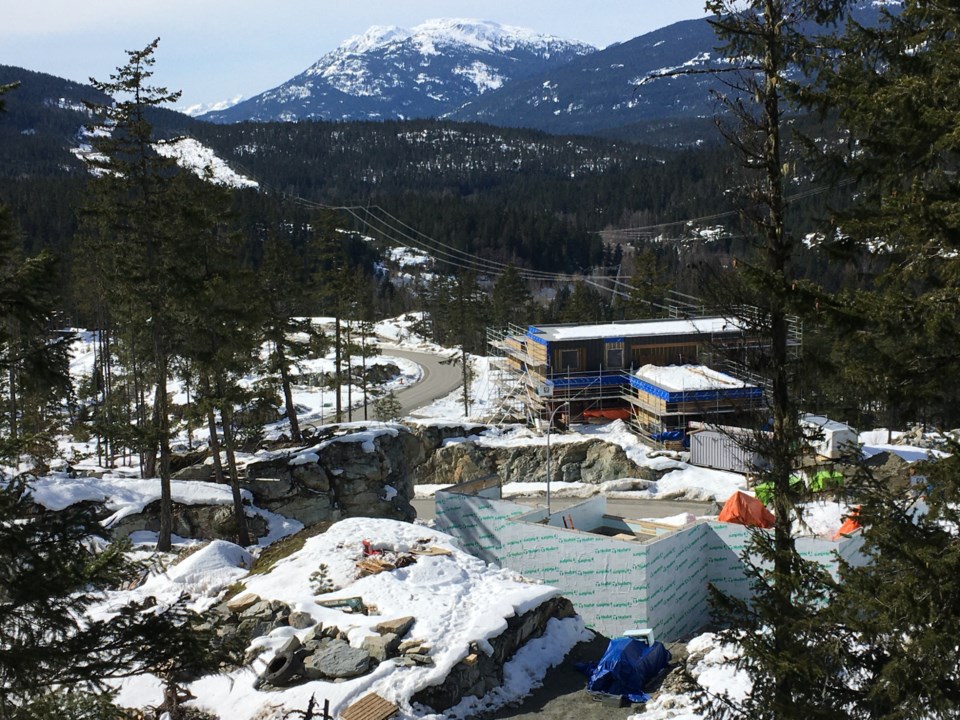After closing out 2020 on a hot streak, Whistler’s real estate market didn’t lose any steam in the first months of 2021.
Local realtors have recorded 205 sales so far this year, compared to 82 at the same point last year—a 150-per-cent increase.
Year-to-date total sales volume is also up significantly, from $102,498,415 to $273,106,624—a 166.4-per-cent jump.
“Twelve months ago, we thought, ‘Oh my god, real estate is going to fall through … the complete and utter opposite happened, and it was surprising,” said Maggi Thornhill, of Engel & Völkers Whistler.
“I’ve never seen it like this ever before.”
According to Engel & Völkers’ annual ski rankings, Whistler ranks among the top 10 most expensive ski resorts in the world—eighth for chalets and ninth for apartments.
Whistler’s highest-priced chalet in 2020 went for US$10.5 million (compared to $54.3 million for the highest-priced chalet in St. Moritz, Switzerland—No. 1 on Engel & Völkers’ list).
“I think the one thing that will probably keep us from getting to the top of that list is the fact that we don’t have a private airport,” Maggie said, adding that people tend to come to Whistler for a different reason than other resorts.
“I think people come here for lifestyle, for the fact that it’s a more casual approach to life here. We don’t have paparazzi following people around here.”
The majority of buyers are still coming from Vancouver and the Lower Mainland, but “the high-end buyer has changed … it’s become a local buyer now,” added Max Thornhill, Maggie’s son and business partner at Engel & Völkers Whistler.
“We have a lot of clients that Whistler didn’t register on their radar 18 months ago, and now they’ve gone and bought $12 million houses here, and they’re like, so shocked at how happy they are with it,” he said.
“Sometimes when we’re too close to something we don’t appreciate it. The pandemic forced people to wake up to their local surroundings.”
While the world-class skiing and biking are of course a huge selling point for buyers, “what they really want is the community,” Max said.
“Its not just the glitz and the glamour and all the things that we think the wealthy want, it’s that sense of home.”
And the demand hasn’t stayed confined to Whistler’s boundaries.
North of the resort, the bedroom community of WedgeWoods has sold about 25 lots already this year—three times what it sold all of last year, said developer David Earhardt.
“I think there’s one lot left in the first five phases. We’re basically sold out of everything that we had on the market, which is very, very gratifying,” Earhardt said.
Recent buyers at WedgeWoods are mostly Canadian, and predominantly from the Sea to Sky region, Earhardt said.
Part of the boom is due to word of mouth, Earhardt believes, but also the realization that working from home is now plausible.
“Suddenly [people] realized that out at WedgeWoods, they could have a home which would allow them to work from home, with the ability to have a designated work area etc., and they have the room, basically, to spread out,” he said.
Between houses already occupied and those under construction, Earhardt estimates that roughly half the subdivision is now developed, with a sixth and final phase yet to be delivered.
“The sixth phase is 20 lots, and we’ve serviced them last year, and we’re going to bring them to the market this year,” Earhardt said.
“So they’ll be the last 20 that will be available.”




